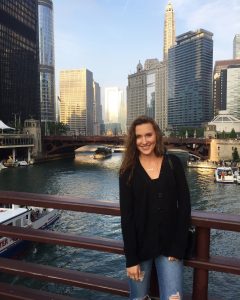Three years ago, Professor Chris Sutter and Professor Michael Conger saw the incredible innovations coming out of Professor Mark Lacker’s Startup Weekend and had a brainchild together. At Startup Weekend, students come with a problem or idea, form a team, and pitch their unique solution at the end of the weekend to investors from the greater Cincinnati area and beyond. Professors Sutter and Conger saw the potential to apply this model to the Social Entrepreneurship program and jumped on the opportunity.
From their idea, Social Innovation Weekend (SIW) was born in 2018. Over the past three years, students from various colleges at Miami have accepted the challenge to innovate some of the world’s most painful problems. These students have come together for a weekend to create solutions for infant mortality in Butler county, the opioid epidemic, and food insecurity. Next year, the SIW organizing team and students at Miami will take on the issue of homelessness.
The magical element of SIW is that participants get the chance to solve problems in their backyard. Butler county faces a diverse range of challenges that are prevalent throughout the US. When digging deeper into issues like infant mortality rates and food insecurity, SIW participants and organizers need look no further than Oxford to find stakeholders. Some Oxford and Butler County residents and even Miami University students have faced the problems SIW has attempted to tackle. Other regional residents have stepped up to care for their neighbors and have established businesses, non-profits, and volunteer organizations targeting social issues in the area. SIW’s goal is to give students passion, connections, and tools to make a change in their communities.
One senior at Miami led the charge this year to organize Social Innovation Weekend. Bea Newberry is a senior at Miami University co-majoring in American Studies and Entrepreneurship. This year she spear-headed Social Innovation Weekend along with Professor Conger, Professor Sutter, and her organizing team of students. Bea and her team along with 130 student participants attempted to tackle the problem of food insecurity.
Here are Bea’s top three tips for running an innovation weekend:
1. Make it a team effort. The organizing team has to run like a startup behind the scenes to make SIW happen and having a great team makes all the difference. All of the efforts to market the event, get students to sign up, and contact mentors from companies in the area fall on the organizing team, so finding efficient, proactive people is key.
2. Mentors take the experience from good to great. Have a lot of stakeholders from the professional community to support students and guide each team through the innovation process. Make sure you use their time as efficiently as possible and help them and the students benefit each other. Professionals in social fields carry a lot of responsibility in their everyday lives, so it is important to make sure they are getting something out of the experience as well.
3. Keep your eyes on the goal. At the end of the day, everyone is working to fix the same issue and it is important that each team succeeds. Part of the job of the organizing team is to make sure that students have what they need to make a great solution and are able to stay involved in the community afterward. Connecting students and organizers to professors and community members who have experienced and helped to solve these big issues are critical.
At the end of the day, Social Innovation Weekend serves many purposes but seeks to accomplish one main goal. Chris Sutter, Michael Conger, Bea Newberry, and the SIW organizing team put this together to help students learn about challenges that people in Oxford, Butler County, Cincinnati, and their hometowns face and give them a passion to solve it. This team strives each year to equip students to actively fight for the end of issues such as opioid abuse and homelessness and the professional community has rallied mightily to support this goal. Along the way to this end, students gain experience with the innovation process, learn from experts in the field, make professional connections, and understand their community better. Social Innovation Weekend has developed over the past three years into a powerful experience for everyone involved and will continue to impact Miami and the region beyond in significant ways in the years to come.
Adapted from an interview with Bea Newberry. Written by Maryanne Smith.


 This past summer I had the opportunity to intern at Narrative Science, a Chicago-based Artificial Intelligence company specializing in translating data into stories. I was able to be a part of this program as an Altman Summer Scholar, and the experience as a whole was not only valuable, but it was also incredibly unique.
This past summer I had the opportunity to intern at Narrative Science, a Chicago-based Artificial Intelligence company specializing in translating data into stories. I was able to be a part of this program as an Altman Summer Scholar, and the experience as a whole was not only valuable, but it was also incredibly unique.